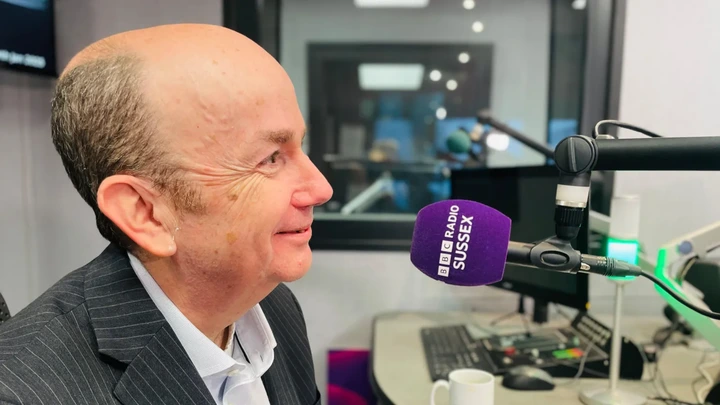
View pictures in App save up to 80% data.
The chief executive of the South East Coast Ambulance Service (Secamb) has indicated that the response time for patients experiencing a stroke could be improved.
Strokes are now designated as a 'category 2 emergency,' with paramedics expected to arrive within an average of 30 minutes. This marks an increase from the earlier response time target of 18 minutes.
According to figures published on Thursday, Secamb's average response time stands at 32 minutes and 12 seconds, in contrast to the national average of 47 minutes.
Simon Weldon, the chief executive of the trust, shared his personal experience of caring for a stroke survivor, stating, "I have a personal desire for us to improve."
During an appearance on BBC Radio Sussex on Thursday, Mr. Weldon acknowledged that experiencing a stroke is "life-threatening" and expressed his desire for the trust to aim for the former target of 18 minutes to attend to a stroke patient.
According to the charity Stroke Association, a stroke occurs when the blood flow to a section of the brain is interrupted, resulting in the death of brain cells.
Mr. Weldon remarked, "How can we ensure that individuals who don't require an ambulance receive the assistance they need, allowing us to provide better care for those patients experiencing a stroke?"
"From my own experience of caring for someone who suffered a stroke and witnessing the impact it had, I feel a strong desire to improve."
'Putting lives at risk'
The Stroke Association has reported that the rising demand for health and social care services has resulted in a strained and poorly funded system, leading to significant delays in response times and patient transfers at hospitals.
A representative stated: "This poses a threat to lives and the process of recovery."
Secamb employs over 4,000 individuals at 110 locations throughout Kent, Surrey, and Sussex.
Nearly 90 percent of its employees consist of operational personnel who provide care to patients, either in person or via phone at emergency dispatch centers that handle 999 calls.










